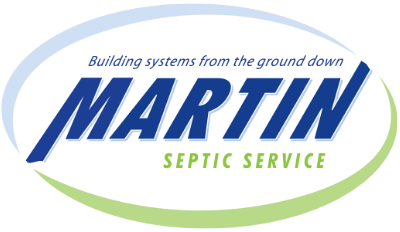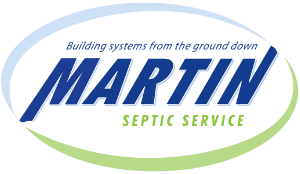What Does a Septic Tank Inspection Involve, and Why Should You Schedule One?
Ensuring the longevity and efficiency of your septic system isn’t just about regular pumping or mindful use—it’s about comprehensive inspections that catch issues before they become costly problems. In Charlotte County, Sarasota County, and Lee County, Florida, the warm climate and varying soil types make it even more essential to schedule these inspections routinely. At Martin Septic, we emphasize the importance of a septic tank inspection to help you maintain a trouble-free system for years to come. But what exactly does a septic tank inspection entail, and when should you schedule one? Let’s explore this topic in depth.
What Is a Septic Tank Inspection?
A septic tank inspection is a thorough assessment of your entire septic system, including the tank, pipes, drain field, and surrounding components. Its main purpose is to ensure that the system is functioning correctly, identify any potential issues, and confirm that the system meets regulatory standards.
Types of Septic Tank Inspections
There are generally two levels of inspections:
- Visual Inspection: This is the basic check often performed during property transactions. It includes a general look at the system, checking for obvious signs of issues like water pooling in the yard or backflow in household drains. The inspector may ask the homeowner questions about the system’s maintenance history but won’t go beyond this surface level.
- Full Inspection: A comprehensive evaluation that involves pumping the septic tank to inspect it from the inside, checking sludge levels, looking for leaks or cracks, and examining the drain field’s condition. This type of inspection is more thorough and recommended for those experiencing problems or buying property in counties like Charlotte, Sarasota, or Lee where soil and water tables can influence system performance.
Why Is a Septic Tank Inspection Important?
A septic tank inspection offers multiple benefits for homeowners:
1. Prevents Costly Repairs
Regular inspections help identify small issues before they escalate into major repairs. A cracked tank or clogged drain field caught early can save homeowners thousands of dollars in replacements and emergency repairs. Given Florida’s high water table, especially in regions like Sarasota County, minor issues can quickly become serious without timely intervention.
2. Ensures Safety and Health
A failing septic system poses significant health risks due to the potential for raw sewage to leak and contaminate groundwater, which is particularly dangerous in Lee County where many properties rely on wells for drinking water. Inspections ensure that your septic system is not a hazard to your family or the local environment.
3. Meets Regulatory Requirements
In Florida, certain counties may have local regulations that require regular septic inspections, especially when buying or selling a home. Regular inspections ensure that homeowners comply with these rules, preventing legal headaches down the road.
4. Protects Property Value
A malfunctioning septic system can affect your property value, making it less appealing to potential buyers. A documented history of regular septic tank inspections by reputable companies like Martin Septic can reassure buyers that your system has been well-maintained.
When Should You Schedule a Septic Tank Inspection?
Knowing when to schedule your septic tank inspection is crucial for proactive maintenance. Here’s a guide to help you determine the best timing:
1. Before Buying or Selling a Home
If you’re in the market for a home in Charlotte County or any other part of Florida with a septic system, a full inspection is non-negotiable. It provides peace of mind by confirming the system’s integrity. Likewise, sellers can benefit from an inspection to address potential issues before listing the property, thus avoiding surprises during negotiations.
2. Every 3-5 Years
Even if there are no signs of trouble, it’s wise to schedule a septic tank inspection every three to five years. This frequency helps maintain the system’s health and catch potential issues early. For homes with high water usage, more frequent inspections may be necessary.
3. After Severe Weather Events
Florida’s storm season can bring heavy rain and flooding, especially in coastal areas like Sarasota County. After significant storms or hurricanes, an inspection is recommended to ensure that the septic system hasn’t been compromised by shifting soil or excessive water infiltration.
4. If You Notice Warning Signs
Certain indicators suggest that an inspection is overdue:
- Slow Drains: When sinks or bathtubs take longer to drain, it could signal a backup in the system.
- Unusual Odors: A foul smell near your tank or drain field might indicate a leak.
- Standing Water: Pooling water above the drain field without rainfall is a red flag.
- Lush Patches of Grass: While greenery is nice, unusually lush patches over the drain field might mean wastewater is leaking.
What Does a Septic Tank Inspection Include?
A comprehensive septic tank inspection typically includes several steps to ensure that every component of the system is assessed:
- Locating the Septic System: The inspector identifies where the tank and drain field are situated. This step is crucial in Florida’s varied landscapes where sandy, loamy, or clay soils can affect system performance.
- Measuring Sludge and Scum Levels: The inspector opens the tank to measure the sludge and scum layers, ensuring they are within acceptable levels. If these layers are too high, it can indicate the need for pumping.
- Checking for Leaks and Cracks: A thorough visual inspection inside the tank helps identify cracks, leaks, or other structural issues that could lead to inefficiency or contamination.
- Examining the Baffles: Baffles help guide the flow of wastewater and prevent solids from clogging the outlet pipe. Inspectors check to ensure these components are intact and functioning properly.
- Drain Field Evaluation: The drain field is checked for signs of water saturation or effluent pooling. In Sarasota and Lee Counties, where high water tables are common, a compromised drain field can be a serious issue.
- System Flow Check: Finally, the inspector may run water from various fixtures in the home to monitor how well it flows into and out of the septic system, ensuring there are no obstructions or inefficiencies.
How to Prepare for a Septic Tank Inspection
To make the inspection process smooth, homeowners should take the following steps:
- Locate Documents: Have any available records of past maintenance and inspection reports on hand. This can provide valuable context to the inspector.
- Clear Access: Ensure that the tank lid and other components are easy to access by clearing away obstacles like plants or heavy objects.
- Limit Water Use: On the day of the inspection, minimize water usage to give the inspector the most accurate reading of the system’s current state.
Choosing the Right Professional for Your Septic Tank Inspection
Not all septic service providers are created equal. In Florida’s septic industry, experience and local expertise make a significant difference. Martin Septic has a proven track record in Charlotte County, Sarasota County, and Lee County. With years of hands-on experience, our team knows the unique challenges that Florida’s climate and terrain can present. We provide detailed reports, clear explanations, and tailored recommendations to keep your system functioning efficiently.
Benefits of Choosing Martin Septic
- Expert Knowledge: We understand the specific needs of Florida homeowners, including those in high-water-table areas and varied soil conditions.
- Advanced Equipment: Our inspections use the latest technology for precise evaluations.
- Comprehensive Reports: We provide full inspection summaries that detail findings and offer next steps if maintenance or repairs are needed.
Final Thoughts: Schedule Your Septic Tank Inspection Today
Don’t wait for minor septic system issues to evolve into major, costly repairs. Whether you’re new to homeownership in Florida or have been maintaining a system for years, a septic tank inspection is essential for your peace of mind and home value. Contact Martin Septic today or visit www.MartinSeptic.com to schedule your next inspection. Stay proactive and ensure the health of your septic system—your home and family will thank you.







